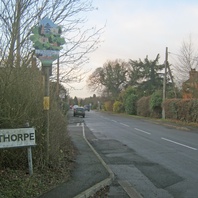
Viking Names
Winthorpe
Winthorpe, in the Newark Wapentake of Nottinghamshire, comes from either the Old English make personal name Wigmund or its Scandinavian equivalent Vígmundr and Old Norse þorp ‘a secondary settlement, a dependent outlying farmstead or hamlet’.
Read More

Viking Names
Brocklesby
Brocklesby, in the Yarborough Wapentake of Lincolnshire, comes from the postulated Old Norse personal name Bróklauss and the Old Norse element bý ‘a farmstead, a village’. The first element is originally a nickname meaning ‘without breeches’ and is likely an Anglo-Scandinavian formation.
Read More

Viking Names
Tupholme
Tupholme, in the Gartree Wapentake of Lincolnshire, comes from the Old Norse male personal name Túpi and Old Norse holmr ‘an island, an inland promontory, raised ground in marsh, a river-meadow’. Alternatively, the first element may represent Middle English tup ‘a ram, a tup’.
Read More
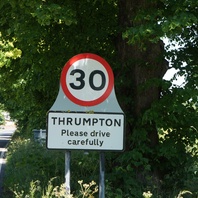
Viking Names
Thrumpton
Thrumpton, in the Rushcliffe Wapentake of Nottinghamshire, comes from the Old Norse male personal name Þórmóðr and the Old English tun ‘farm, settlement’. Thus it is an Anglo-Scandinavian hybrid name. There is a place of the same name, with the same origin, in the Bassetlaw Wapentake.
Read More
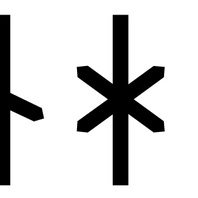
Viking Names
Ragnhild
The female name Ragnhildr is very common throughout the Scandinavian world, including several parts of Britain and Ireland, up to modern times. There is a suggestion that it was restricted to royalty and aristocrats in the Viking Age and then spread to other social groups. It may be the first element of the Lincolnshire place-name Raventhorpe, although in fact the earliest forms suggest the male name Ragnaldr, and more recent publications prefer this interpretation.
Read More

Viking Names
Gudrid
Guðríðr was common in Iceland from the time of settlement (c. 870-930) onwards and is recorded in the quasi-historical Old Norse-Icelandic text Landnámabók ‘The Book of Settlements’ that recounts this period. The name was also common in Norway and is found in a Danish runic inscription and possibly appears in a Swedish place-name. Forms of Guðríðr are attested in medieval Yorkshire charters and documents. The first element of the name is Guð from guð, ‘the gods’ and is combined with the second element -(f)ríðr, related to Gothic frījōn ‘to love’ with the original meaning ‘loved’, later meaning ‘fair’.
Read More
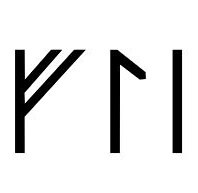
Viking Names
Ulfljot
The Old Norse female personal name Úlfljót is comprised of the element Úlf– ‘wolf’ and the element -ljót which is also attested as the simplex female personal name Ljót. Although Úlfljót is not otherwise attested, the masculine equivalent Úlfljótr is recorded in Iceland and possibly Yorkshire. John Hines has suggested that the female name is inscribed in runes on the Saltfleetby spindle whorl found at Saltfleetby St Clement, Lincolnshire, which he has translated as ‘Óðinn and Heimdallr and Þalfa, they are helping you, Úlfljót…’.
Read More
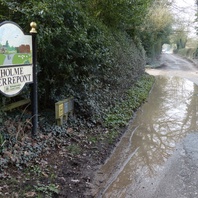
Viking Names
Holme Pierrepont
Holme Pierrepont, in the Bingham Wapentake of Nottinghamshire, comes from Old Norse holmr ‘an island, an inland promontory, raised ground in marsh, a river-meadow’. The name describes its location which is surrounded by watercourses and dikes. The suffix Pierrepont was added at a later date to reflect the family connected to the location. For more information about holmr place-names in the East Midlands, see the Lunchtime Talk Holme from Home? East Midland Place-Names and the Story of Viking Settlement.
Read More

Viking Names
Thorarna
Þórarna is a Old Norse compound name with the first element Þór-, from the name of the god Þórr ‘Thor’ (very common in both male and female names), combined with -arna, the feminine form of -arinn, either from arinn ‘hearth’ or more probably the postulated element *arin related to ǫrn ‘eagle’. A couple of instances of Þórarna are recorded in Norway with one of the earliest being from the ninth century. The name is frequent in Iceland evidenced by the multiple mentions in Landnámabók ‘The Book of Settlements’, a quasi-historical text which recounts the settlement of Iceland. Þórarna is not attested in Denmark or Sweden. There is a form of the name found in the Yorkshire Domesday, but it may alternatively represent the male name Þórormr.
Read More
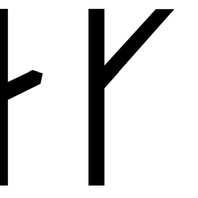
Viking Names
Ragni
Ragni is a short form of names in Ragn-, related to Old Norse regin, genitive plural ragna, ‘ruling powers, the gods’. The personal name element probably has the sense of ‘advice’, but it may indicate ‘the gods’, as it does in Ragnarök, the name of the apocalypse in Old Norse mythology. A few late instances of the personal name are recorded in West Scandinavia, it is recorded in several runic inscriptions in Sweden. Also, Ragni is the first element of the place-name Ragnall, Nottinghamshire.
Read More
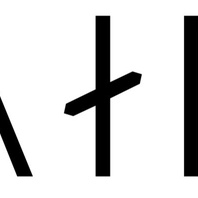
Viking Names
Havard
Hávarðr is a compound name formed from Há- which has three potential origins of ‘horse’, ‘high’, or ‘battle’ and -varðr ‘guard, watchman’. The name is found in West Scandinavia at the time of the settlement of Iceland and is very common in Norway from the thirteenth century onwards. The name is also recorded in Sweden and Denmark. Hávarðr is the first element in the place-name of Hawerby, Lincolnshire.
